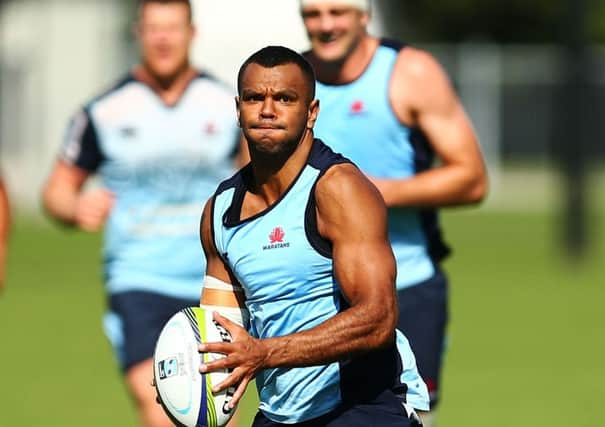Allan Massie: It will only become tougher to get level playing field


What one can say now is that last week far too much went wrong. Glasgow dominated the first quarter, but didn’t score, a couple of chances to cross the try-line being missed while Finn Russell failed with two kicks at goal and also put a penalty into touch in goal. Then there was the red card given to Sila Puafisi with the scores level and half an hour to go. One couldn’t quarrel with the referee’s decision, but it meant that the odds were stacked against Glasgow. There were other mistakes, notably the silly penalty conceded by Jonny Gray and, near the end, replacement scrum-half Grayson’s Hart’s impetuous decision to take a tap penalty when it seemed that it would have been more sensible to go for a five-metre line-out. A catalogue of errors – and yet the margin of defeat was only one converted try. This weekend, however, is European finals time, with Montpellier vs Harlequins last night, and Racing 92 vs Saracens this afternoon. So no Pro12 direct interest in what are billed as Anglo-French affairs. They are that of course, but only in the sense that a European Cup-tie between, say Chelsea and Barcelona might be described as an Anglo-Spanish contest. That comparison is to the point. At the top level of the European club game, rugby is going the same way as football went years ago. The top clubs in France and England field multi-national teams. It’s gone further in France than in England, considerably further indeed, but the trend is the same. The news this week that Wasps have signed the Australian star Kurtley Beale, and will reportedly be paying him £750,000 a year offers further evidence of what is happening.
The Montpellier line-up last night makes the point. The club website shows that they have lots of French players under contract, but there were more South Africans than Frenchmen in the starting XV, and at scrum-half the Australian international Nick White was preferred to the very talented Benoit Paillaugue. Toulon of course have won the old Heineken Cup with only a couple of French players in their team, and if Racing beat Saracens today, it’s likely that Dan Carter will have been an influential figure.
Advertisement
Hide AdAdvertisement
Hide AdThe dominance of imports in the Top 14 is generally considered to be one reason – even the main reason – of the decline of the national team. This is a problem for the FFR but the club owners don’t care, any more than the owners of football clubs in the English Premiership think that they have any responsibility to develop young players qualified to represent England. But the way the club game is going in France and England poses problems for Scottish, Irish and Welsh clubs, too.
First, their priorities can’t be the same. They are not, happily, fully independent as French clubs are, and English ones almost are. (I say ”almost” because the English Premiership clubs have a binding agreement with the RFU.) In Scotland, Ireland and Wales the professional clubs are to varying extents subject to their national Union, and recognise that they have a duty to develop players for international rugby. Even if this wasn’t the case, even if they existed to win the European Champions Cup, it’s inconceivable that they could compete on level terms in the market-place with the big French and English clubs. They couldn’t, any more than Celtic can match the spending power of Real Madrid or Manchester City. Two examples from this season make the point. Leone Nakarawa is leaving Glasgow for Racing, though there was still a year on his contract. Nobody of course thinks the worse of him, but Glasgow will miss him. Likewise Leinster are losing their New Zealand centre Ben Te’o to Worcester, who will – again reportedly – be paying him £350,000 a year. Te’o has played brilliantly for Leinster in partnership with the very talented young Garry Ringrose. But he’s off, even though Worcester are not one of the leading English clubs and, unlike Leinster, won’t be in the Champions Cup next season. It may not be just a case of money in Te’o case, though it surely played a part. He apparently has an England qualification, and would have to be playing in the English Premiership to have a chance of being capped.
Nevertheless the implication of these moves is clear. All top professional clubs in the Six Nations field foreigners; none relies only on players eligible to represent the country where the club is based. With rare exceptions players moving north from the southern hemisphere will, at some point, follow the money, and the richest clubs will have more southern hemisphere internationalists than poorer clubs. One has to conclude that it’s hard for Pro 12 clubs to compete with the big battalions in European competition now; and, sadly, it going to get harder still.